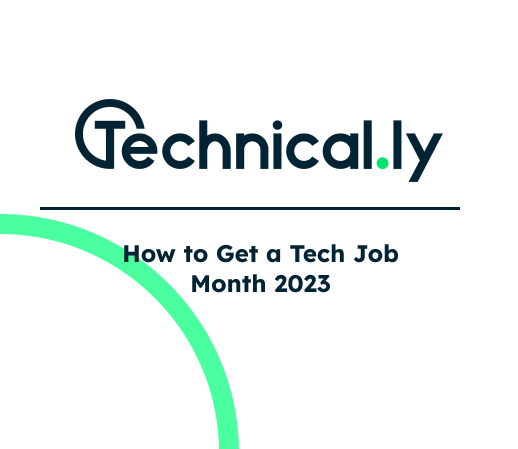Who is one entrepreneur and innovator that aims to bring communities together and support budding entrepreneurs by lending her expertise to organizations such as Open Works, Baltimore Community Lending and the Maryland Business Innovation Association?
If you guessed Stephanie Chin, a proud Towson University alumna, you’re correct. Chin currently serves as the program manager for Hutch, a business-to-government digital services and civic tech incubator founded by Fearless.
Before joining Fearless when Hutch launched in 2020, Chin led multiple entrepreneurship initiatives at Maryland Institute College of Art, an institution whose entrepreneurship programming will purportedly not be impacted by the school’s current financial position, and ran the edtech-focused TU Incubator at her alma mater. Similar to her leadership of Hutch, which seeks to uplift minority-owned tech companies seeking lucrative government contracts, Chin spent her time with the TU Incubator collaborating with a diverse group of entrepreneurs.
In a call with Technical.ly, Chin said that her move to Hutch provided her the opportunity to hone in on helping underrepresented entrepreneurs build digital services in areas such as cybersecurity, project management, software engineering and agile management.
The board chair at Open Works and member of Baltimore Community Lending also highlighted Fearless’ goal with programs like Hutch to develop technical solutions for government services. She even questioned why government services should have different standards than those in the private sector.
“Why shouldn’t it be as easy or seamless when we’re interfacing with government services, like the customer experience we have when we go online to buy something from Amazon?” she said.
By dint of her experiences and passions, Chin discussed the 2023 trends affecting people entering the tech industry, pathways, entry points, effective networking tips and lessons learned from entrepreneurs who completed the incubator. gone through the Hutch incubator program. This interview has been edited for length and clarity.

Stephanie Chin (far left) and Fearless CEO Delali Dzirasa (far right) with recent Hutch alums. (Courtesy photo by Robert Banez)
What trends do you see in 2023 for people entering the tech industry?
So many exciting pathways into technology are available in 2023, providing opportunities for individuals without a four-year degree or postgraduate studies. Free coding academies and boot camps, such as those run by Mastermnd’s Aaron Brooks and Ey3 are also doing really interesting work around tech workforce development in PG County, Maryland. Non-traditional paths into tech have been taken by some of the Hutch founders, who learned the business side of things to build a successful business and platform for good, promoting inclusive and equitable technology.
Even some of our Hutch founders took non-traditional paths into tech and then branched out to run their own businesses. Some of them never imagined themselves as CEOs or businesspeople, but they knew the technical side well. To build a successful business and platform for good — and make technology more inclusive and equitable — they had to learn the business side of things. It’s fascinating to see the different pathways people take to enter tech, and even for myself, I never considered myself a technologist, but I now work in the center of tech with tech entrepreneurs.
Let’s discuss how to network effectively at tech events. What would you tell both aspiring and established technologists as they engage with peers during gatherings in Baltimore?
When attending events, I believe it’s best to go solo rather than with a friend or colleague, as it allows you to network and pitch yourself more effectively. It’s important to have an ask in mind when talking to others, even if it’s a simple request to meet someone new or learn about resources. In Baltimore’s friendly ecosystem, people are willing to help and see others succeed, so don’t hesitate to ask for guidance or introductions. Lastly, it’s crucial to connect with people on a personal level first, rather than immediately diving into business or career talk.
Having gone through multiple Hutch cohorts, what lessons have you learned as far as what entrepreneurs need to take or leave behind?
For entrepreneurs in accelerators, incubators and other business programs, it can be an opportunity to start pressure testing what they have and getting other people’s feedback and perspectives. Bringing in a fresh perspective from peers, mentors or coaches when it comes to a website, logo or brand is invaluable because sometimes you’re too close to the work and there are a lot of blind spots. Even if it has been done before in a previous program, entrepreneurs can use the programs as a learning experience to pressure test what they already have.
On the program side with Hutch, we’re always iterating based on feedback, the experience of our cohorts and the needs and expectations of the individuals in the new cohort. It’s never a case that we’re building a program and curriculum, and then we rinse and repeat it. We scaffold the program and curriculum based on the needs of the cohort because the entrepreneur’s journey looks a little different.
At Hutch, we spend the first quarter of the first year of the program focusing on fundamental things like core values and the company’s vision. Founders often forget to be intentional about the “why” and instead focus solely on the “what” and “how” of their business.

This editorial article is a part of How to Get a Tech Job Month of Technical.ly’s editorial calendar.
Before you go...
Please consider supporting Technical.ly to keep our independent journalism strong. Unlike most business-focused media outlets, we don’t have a paywall. Instead, we count on your personal and organizational support.
3 ways to support our work:- Contribute to the Journalism Fund. Charitable giving ensures our information remains free and accessible for residents to discover workforce programs and entrepreneurship pathways. This includes philanthropic grants and individual tax-deductible donations from readers like you.
- Use our Preferred Partners. Our directory of vetted providers offers high-quality recommendations for services our readers need, and each referral supports our journalism.
- Use our services. If you need entrepreneurs and tech leaders to buy your services, are seeking technologists to hire or want more professionals to know about your ecosystem, Technical.ly has the biggest and most engaged audience in the mid-Atlantic. We help companies tell their stories and answer big questions to meet and serve our community.
Join our growing Slack community
Join 5,000 tech professionals and entrepreneurs in our community Slack today!

The person charged in the UnitedHealthcare CEO shooting had a ton of tech connections

From rejection to innovation: How I built a tool to beat AI hiring algorithms at their own game

Where are the country’s most vibrant tech and startup communities?



